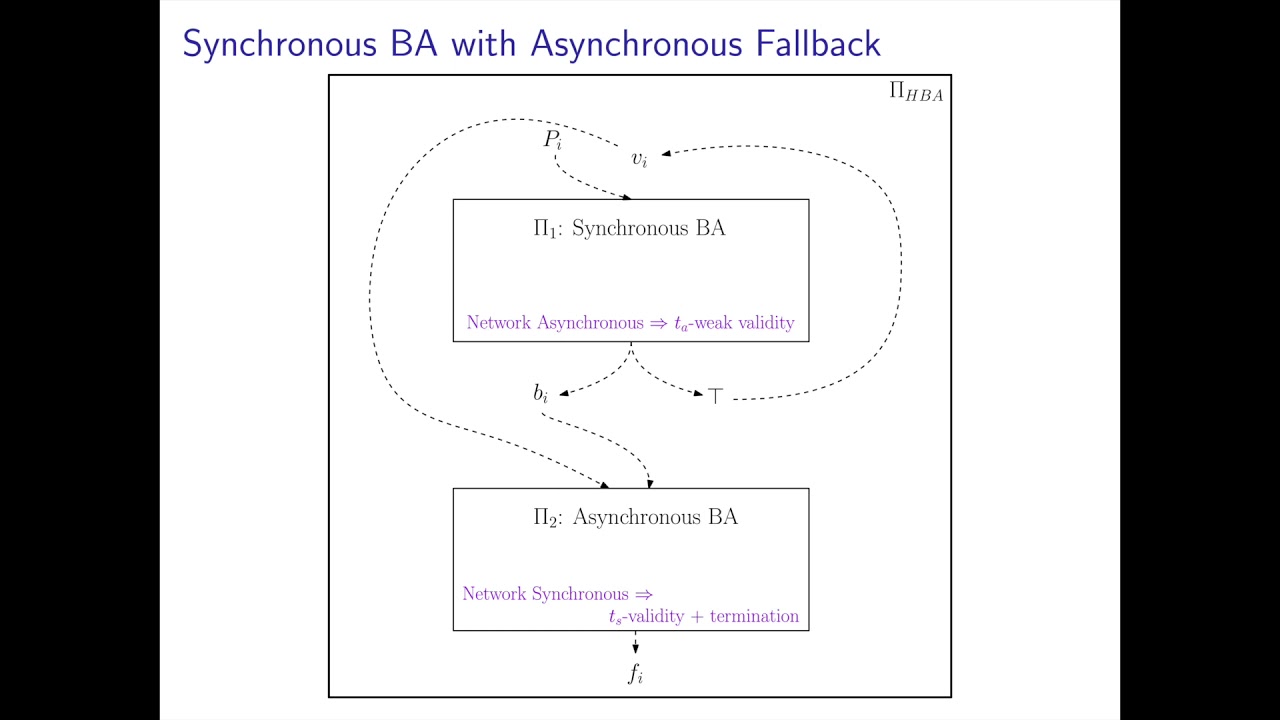Welcome to the resource topic for 2021/1141
Title:
Round-Efficient Byzantine Agreement and Multi-Party Computation with Asynchronous Fallback
Authors: Giovanni Deligios, Martin Hirt, Chen-Da Liu-Zhang
Abstract:Protocols for Byzantine agreement (BA) and secure multi-party computation (MPC) can be classified according to the underlying communication model. The two most commonly considered models are the synchronous one and the asynchronous one. Synchronous protocols typically lose their security guarantees as soon as the network violates the synchrony assumptions. Asynchronous protocols remain secure regardless of the network conditions, but achieve weaker security guarantees even when the network is synchronous. Recent works by Blum, Katz and Loss [TCC’19], and Blum, Liu-Zhang and Loss [CRYPTO’20] introduced BA and MPC protocols achieving security guarantees in both settings: security up to t_s corruptions in a synchronous network, and up to t_a corruptions in an asynchronous network, under the provably optimal threshold trade-offs t_a \le t_s and t_a + 2t_s < n. However, current solutions incur a high synchronous round complexity when compared to state-of-the-art purely synchronous protocols. When the network is synchronous, the round complexity of BA protocols is linear in the number of parties, and the round complexity of MPC protocols also depends linearly on the depth of the circuit to evaluate. In this work, we provide round-efficient constructions for both primitives with optimal resilience: fixed-round and expected constant-round BA protocols, and an MPC protocol whose round complexity is independent of the circuit depth.
ePrint: https://eprint.iacr.org/2021/1141
Talk: https://www.youtube.com/watch?v=5tWqdk-fs04
See all topics related to this paper.
Feel free to post resources that are related to this paper below.
Example resources include: implementations, explanation materials, talks, slides, links to previous discussions on other websites.
For more information, see the rules for Resource Topics .
